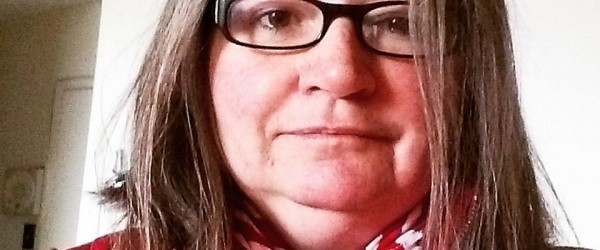
Interview with Amanda Earl
Interviews, WritersAmanda Earl is a poet and publisher from Ottawa. And it’s pretty hard to narrow down her accomplishments to some pesky short list of obvious facts. She is the managing editor of Bywords.ca, and self-described “fallen angel” of AngelHousePress. But there’s more than meets the eye. She’s got some edgy stuff, she’s got some heady stuff, she’s got some mental stuff. Recall your favourite Byron quote here. And you need to check it out yourself – ’cause here we just talk about many-many things.
***
VB: Talking about creativity is really funny. Isn’t it? I mean – it’s always gets into “dancing about architecture”-territory – what do you think about it?
AE: I love conversations on creative stuff for exactly that reason. I think all my creative acts are driven by the concept of “Writing about music is like dancing about architecture.” quote attributed to many different artists, including Laurie Anderson, who I admire and call a renaissance woman because she does so many things. This ties into the idea of creativity being a multi-genre or multi-media type of activity. I love exploring and discovering art, music, literature, film, food, people I’ve never been exposed to yet.
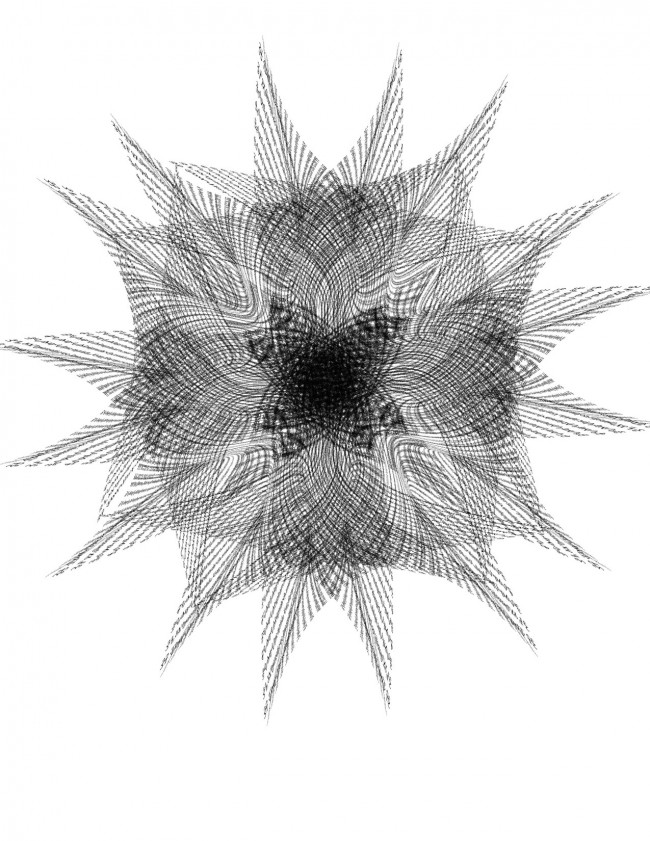
VB: The whole “interview thing” – it’s pretty surreal in many ways. At some point it reminds me some kind of a fictional reconstruction based on a fact but not exactly accurate. The questions are wrong and the answers are all over the place. Sometimes it’s a kind of interrogation and sometimes it’s just a babble in mamet-speak and then it’s all over the sudden mysterously refreshing way of expressing certain concepts. What do you think about interviews as a medium for represention of yourself? Also – have you ever experienced an interview that basically is more an endurance test than a simple Q&A?
AE: I think interviews are a genre unto themselves. I am an avid interview reader/listener. What I find somewhat frustrating about interviews is that they are one way. I’d like to ask you questions too.
The worst interviews, to me, are the ones where all the questions are set up ahead of time, and the interviewer doesn’t seem to be listening to what the interviewee is saying. I prefer interviews to be conversations.
I love the all-over-the-place quality of interviews. My favourite interviewer is Eleanor Wachtel of the Canadian radio show, Writers and Company. She’s been hosting the show for a quarter century, and therefore very experienced, consequently, she is very well prepared. She can make me interested in a person I never even thought about before. Her 2012 interview with Fran Lebowitz, for example, is fascinating and all over the place. She is able to learn details about Lebowitz that seemed very personal because she somehow managed to make her feel at ease.
For written interviews I love the Paris Review’s series, the Art of Fiction. They have interviews from each decade starting from the 1950s. They have these lovely little descriptions of the setting for the interviews, such as the one for Dorothy Parker, the Art of Fiction No. 13:
“At the time of this interview, Mrs. Parker was living in a midtown New York hotel. She shared her small apartment with a youthful poodle that had the run of the place and had caused it to look, as Mrs. Parker said apologetically, somewhat “Hogarthian”: newspapers spread about the floor, picked lamb chops here and there, and a rubber doll—its throat torn from ear to ear—which Mrs. Parker lobbed left-handed from her chair into corners of the room for the poodle to retrieve—as it did, never tiring of the opportunity.”
These interviews are important for me as a writer. I can learn a lot about technique and approach. Anne Carson, in her interview with Wil Aitken, for example, talks about failure and its role in her work.
As to interviews as a representation of my work or anyone’s work, I think it’s a mistake to take any interview as gospel or as the be-all-and-end-all about a writer’s work. It’s a moment in time. At various points, I am obsessed with various things, and consequently this obsession is reflected in a current interview, but it doesn’t ever represent some overall attitude or approach. There may be things in interviews that recur, I think, such as my attitude towards perfectionism (inhibiting) and the importance of Duende in my creative work.
The interviews that I find the most daunting are the ones where the interviewer wants to know background about concepts in my writing that just came to me on the fly without much thought. So suddenly I have to be an expert on surrealism or something. I’m not and I admit it. I’ve found the best way of dealing with interviews where I’m put on some kind of Writer’s Pedestal is to confess that I’m just a lowly scribe trying to figure things out. The general public and consequently interviewers tend idolize creative people, expecting them to have definitive answers, or they expect them to be tastemakers. Their opinions on greatest books are highly sought after. But it’s daft. I’m an avid reader, but I’d just as soon read Mojo Magazine as I would The Mayor of Casterbridge. Writers aren’t experts, at least I’m not. I’m a person who searches. If I had all the answers, I’d stop searching.
VB: Is there a need to express your ideas outside your world?
AE: What’s my world? I have a need for connection with those who share my values and sense of whimsy, so I need to share my work. The Internet is a great way of doing so because it reaches people who are strangers to me. Not just by writing and sharing my own work do I find this connection. As a publisher (Bywords.ca, AngelHousePress, DevilHouse), I also find artists whose work I admire and who I can promote to kindreds. This is a troubled time in the world. I guess it’s always a troubled time in the world, but these days I feel especially driven to put more art, more beauty, more provocation into the world. Art makes us question propaganda and convention, and provides us with a way to get through tragedy and absurdity.
***
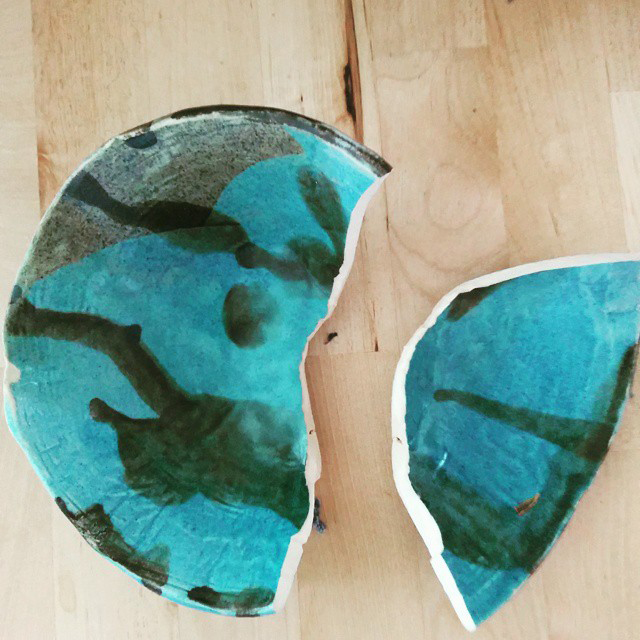
VB: There’s a lot of talk about new mediums that supposedly bring new ways of expressing ideas (or feelings in some cases) in art – what do you think about incorporating the new stuff in your work?
AE: None of this is my strong suit. If I could collaborate with others, who can do animation or graphic comics or videos, I’d love to.
VB: Speaking of digital realm – what do you think about multiple versions of one piece of work – i mean nowadays everything can be represented in a variety of ways – as a recording, as a video, as a collage, image-macro and so on. Is this multiplying useful for a writer – what it can bring and where it leads?
AE: I think it’s fantastic. Jean Cocteau was doing similar things with his experimental film back in the 50s and 60s. So were a lot of Dada artists. I love blurring the edges of things. I hate binaries. The idea of multiple representations is fabulous. I have some works that I’d love to see recast.
VB: What do you think about consciously using old ways of expressions in order to constrain and reorganise yourself?
AE: I’m a quirky person who loves whimsy. I’ll do pretty much anything for inspiration and exploration. I don’t know what you mean by using “old ways of expressions,” but I’ll work with any constraints, such as form poetry, like the pantoum or the sestina, if it serves the work. I’ve written over a hundred ghazals, for example. It’s originally a 12th century Persian form, but contemporary poets, especially Canadian poets like John Thompson have made it their own.
VB: What do you think about a concept “to boldly go where no one has gone before” – is it relevant in age of Internet? Is it necessary to do something new for sake of doing something new or is it important to do the right thing in the right time?
AE: I like Pound’s idea of making something new. I think it’s important to see creative work as a continuum, influenced by the past, the present and the future. Creativity for the sake of creativity is fine with me. I’m into the idea of exploration for its own sake. You never know where it will lead.
It’s true you can pretty much find everything on the Internet. Google “clown sex.” And that’s great. But no one has your particular spin or point of view on something. The difficulty, for some people, is to be original. I’ve never really had that problem. I’m an odd bird. I fly on rickety, multi-coloured, wings that no one ever thought could be used for flight.
***
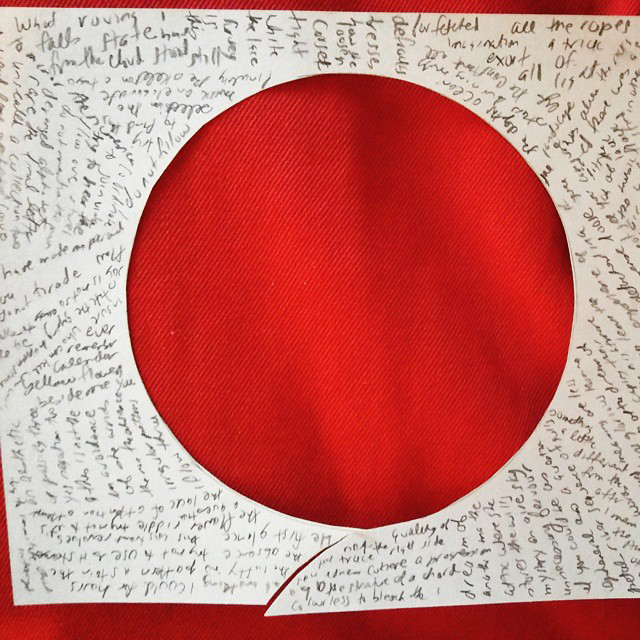
VB: What do you think about time-consuming activities?
AE: I’m very careful about saying yes to things. I don’t like to have external structures imposed on me. I have the luxury in life of being able to say no to pretty much everything that attempts to do so. If I say yes to something, I will put my heart and soul into it. Even cleaning the toilet.
VB: Have you ever experienced a so-called writer’s block? By the way – isn’t it a stupid concept that exists only to provoke funny answers?
AE: I hope I never treat your questions with anything but respect. I don’t suffer from creative blockages. As I said in the first question series, in the Output section, I’m not a commercial writer and therefore all my deadlines are self-imposed. If I’m struggling, I can move on to something else for a while and see what happens. Writing to me is like breathing. It simply happens. I don’t set schedules. I sometimes have specific goals in mind, but the Imp of the Perverse always has other plans. I tend to let the Imp win.
VB: Have ever experienced the need to do less pretentious things? By “less pretentious” i mean something completely different and devoid of any usual ambition.
AE: I hope nothing I do has pretense. My intent is always to explore and to connect with kindreds, so in that sense I’m always doing something completely new. I’m open.
***
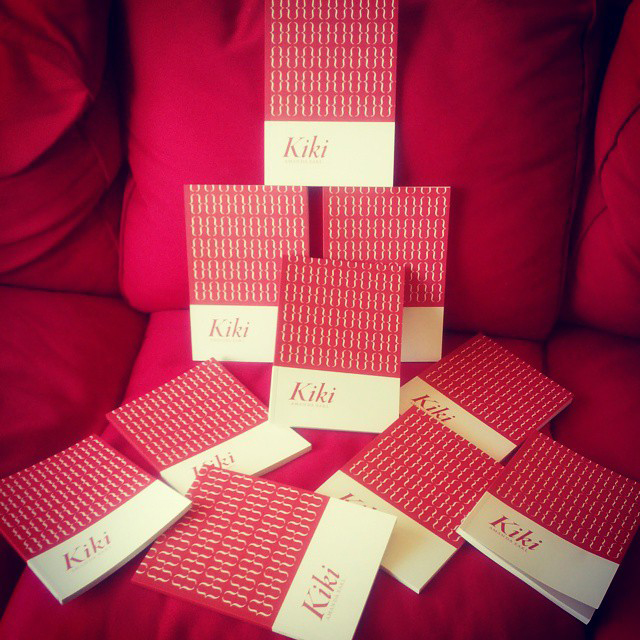
VB: Can you describe – step by step – your more or less ordinary writing session?
AE: My process involves three stages: 1) input; 2) creation; and 3) output. The whole process is driven by Duende:
“descended from that blithe daemon, all marble and salt, of Socrates, whom it scratched at indignantly on the day when he drank the hemlock, and that other melancholy demon of Descartes, diminutive as a green almond, that, tired of lines and circles, fled along the canals to listen to the singing of drunken sailors.”
Lorca, Theory and Play of the Duende Translated by A. S. Kline © 2007.
I write in the presence of death, knowing my life can end at any moment. I write with urgency.
Input
I am a close listener and observer. I pay attention to what is around me, conversations, pauses, silence, the emotions I feel around me, the atmosphere of the place I am in. I also read a lot, listen to music and look at art. All of these resources, combined with my imagination are the catalyst for my creative work, whether it be poetry, fiction, nonfiction, doodles or visual poetry.
Creation
An image, phrase or personality will obsess me and I will have to mull it over and read about it or play with it until I can write about it. Like every writer in all the cliché films about writers, I carry a journal with me at all times and jot down scraps of convo, quotes I read, phrases and words I like. It’s all mixed together with day-to-day observations. I spend a lot of time in coffee shops and pubs. I also take long aimless walks all the time. I’m lucky to live downtown in a very walkable and green city.
Today I was walking south into an oncoming storm. The sky was a white-grey-blue that I was unable to describe with my meager vocabulary. Now at some point I will read about various blues and try to come up with a word or phrase to describe it. I don’t know where that will lead. It could be the start of something or nothing. I don’t worry about what the thing will become.
At the same time I was imagining that we were in the days just before the end of the world and this created an atmosphere of urgency in my mind. I’ve just finished reading the marvelous novel Station Eleven by Emily St. John Mandel, a book about a flu virus epidemic that wipes out most of humanity and leaves the survivors without any of the trappings of modern society, so I think that influencing my apocalyptic thoughts.
What I decide to do with these influences is determined by numerous things. I could end up writing a one-off poem, a series of poems, a story or creating a visual poem or some hybrid. I don’t start off saying I’m going to write a poem. I’m very much into the idea of hybrids right now, of not worrying so much about genre, of blurring boundaries.
I usually don’t have to look back at the scrawlings in my notebook, except for the quotes. The act of putting my thoughts down on paper is usually enough for me to be able to compose a piece of writing.
I’ll revise as I go and I’ll revise later.
I often work in the long poem format, so some of the revision I do to the early stuff happens because of the direction the poem decided to go.
I work on more than one thing at a time. When one project isn’t working out, I’ll work on another. If a poem is driving me batty, I’ll switch to visual poetry. Or I’ll write a short story. Or I’ll drop a pile of paint on a blank canvas and fool around with it.
Output
It’s important for me that my work doesn’t just sit languishing on my computer for years; although plenty of it does. I write knowing full well that I’ll never be able to accurately translate the stuff in my head into words, that I’m inarticulate and that language is not adequate to express everything I need to express. So I don’t wait for perfection because it will never arrive.
I’m very haphazard about submitting work for publication. If a particular call interests me, I’ll write something specifically for the call. I have a couple of book-length manuscripts being considered by Canadian publishers right now, but it takes me a long time before I actually send manuscripts for consideration. I’m embarrassed to admit how many book-length and chapbook length poetry manuscripts I have on my computer, awaiting revision/publication. Some of them will probably be abandoned. But I’m not deleting them. Every once in a while I revisit them if I receive an invitation to submit work or if a call seems relevant to what I’ve done.
There’s no formula for me. I’m not a commercial writer. I write because I’m driven to do so. I write for the lonely reader who doesn’t fit in and perhaps, like me, doesn’t want to fit in to mainstream society. I have empathy for fellow misfits. I always say I don’t write to comfort and that’s true, but at the same time, I know in my own reading that when I read something by someone who has some of the same misfit tendencies as I do, it helps, and it often inspires.
My poetry tends to be fragmented. I’ve heard criticism that a lot of what I write isn’t coherent and I agree with that. Life isn’t particularly coherent. I’m not one of those writers who attempts to bring order to the world. As Bob Dylan said (if you believe the internet), “Chaos is a friend of mine.”
I can be impulsive & publish a poem on Tumblr because it feels like I have to strike while the poem feels hot to me. Or I can be level-headed, give the poem some time to settle and come back to fix it.
If I feel like I want something to be in people’s hands quickly, I might choose to self-publish through my micropress, AngelHousePress under my imprint “le Temps des cerises” (based on the French song from the 1800s about a woman who stood at the barricades during the Paris Commune and sang. Cherry season is short in other words, seize the day.) In that case I publish a limited edition chapbook of 26 copies, which I give mostly to friends/kindred spirits.
The idea of Duende is that one is influenced by what has gone before, so I don’t like withholding my work for too long. What if some imperfect piece of shite that I’ve created inspires someone else to write something amazing?
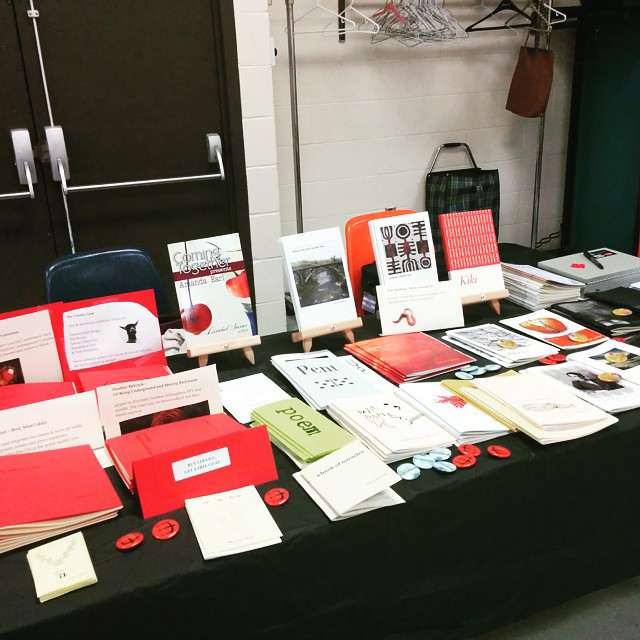
VB: About our thinking – what happens inside your head during that time?
All of the above. I have a difficult time focusing on one thing. I have big ideas. I have a wild imagination. In order for me to be able to sit down at the computer and write, I need to feel a sense of urgency; otherwise I can’t do it. I will bullshit myself & procrastinate with all kinds of things instead of writing. Sometimes I need to play frantic music, like Nine Inch Nails, The Downward Spiral. I wrote a 60 page manuscript in 48 hours to this music. I need to have a rebellious, fuck-you attitude to write. This kind of music gives that to me.
VB: How much time passes since the inception of the piece and the start of writing?
AE: I often wait until I have something firm in my mind before typing it in on the computer. When my words are converted into zeroes and ones, it makes the whole thing seem too permanent and polished to me, so I often resist the temptation to put things down until I am truly driven to do so. I want to maintain the sense of urgency.
VB: What is the point when you decide that you’re ready to do “it”? Can you describe that moment as “making an executive decision”?
AE: I loathe the expression “making an executive decision.” Reminds me too much of bureaucracy or some kind of boring day job. I start putting the stuff in my mind on computer when I can’t hold it in my head any longer. If I wait too long, the phrase or image will disappear.
VB: Are there any notions that can be described as “this is it – i need to start working right now” and then “this is it – i think i need to stop right here”? Have you ever missed them and continued working until it fell apart?
AE: Yes, sometimes I know I can’t do anything else but write what I have in my mind. I might be really hungry or tired, but my mind won’t be satisfied until I’ve drafted something.
I’ve ruined a good manuscript by going too far, by not stopping and letting it rest. I use the delete key a lot, but in over a decade of writing with the goal of sharing my work with the outside world, I’ve fucked things up royally more than a few times. To the point where I’m not sure the work is salvageable. It’s like playing Jenga, stacking words and phrases on top of one another, trying to achieve, I don’t know, … balance? Sometimes the words come tumbling down. All I can do at that point is start over. Try to build a solid foundation and end up with something that will hold.
VB: Or everything happens here and there just because it happens the way it happens?
AE: If something serendipitous and wonderful occurs, sure. But that’s rare.
VB: Have you ever experienced a fit of perfectionism that actually ruined a piece and turned it into insufferable torture?
Not exactly, but I held back sharing my writing, particularly my poetry, with the outside world for years because I thought it had to be perfect. It wasn’t until 2000 when a serious life change caused me to look for poetry for solace that I realized that what I was writing was even poetry.
***






















